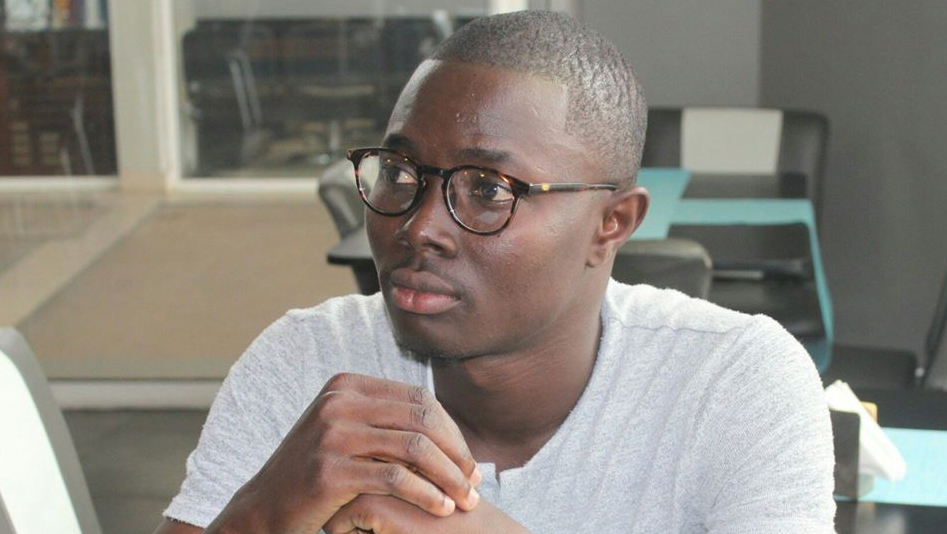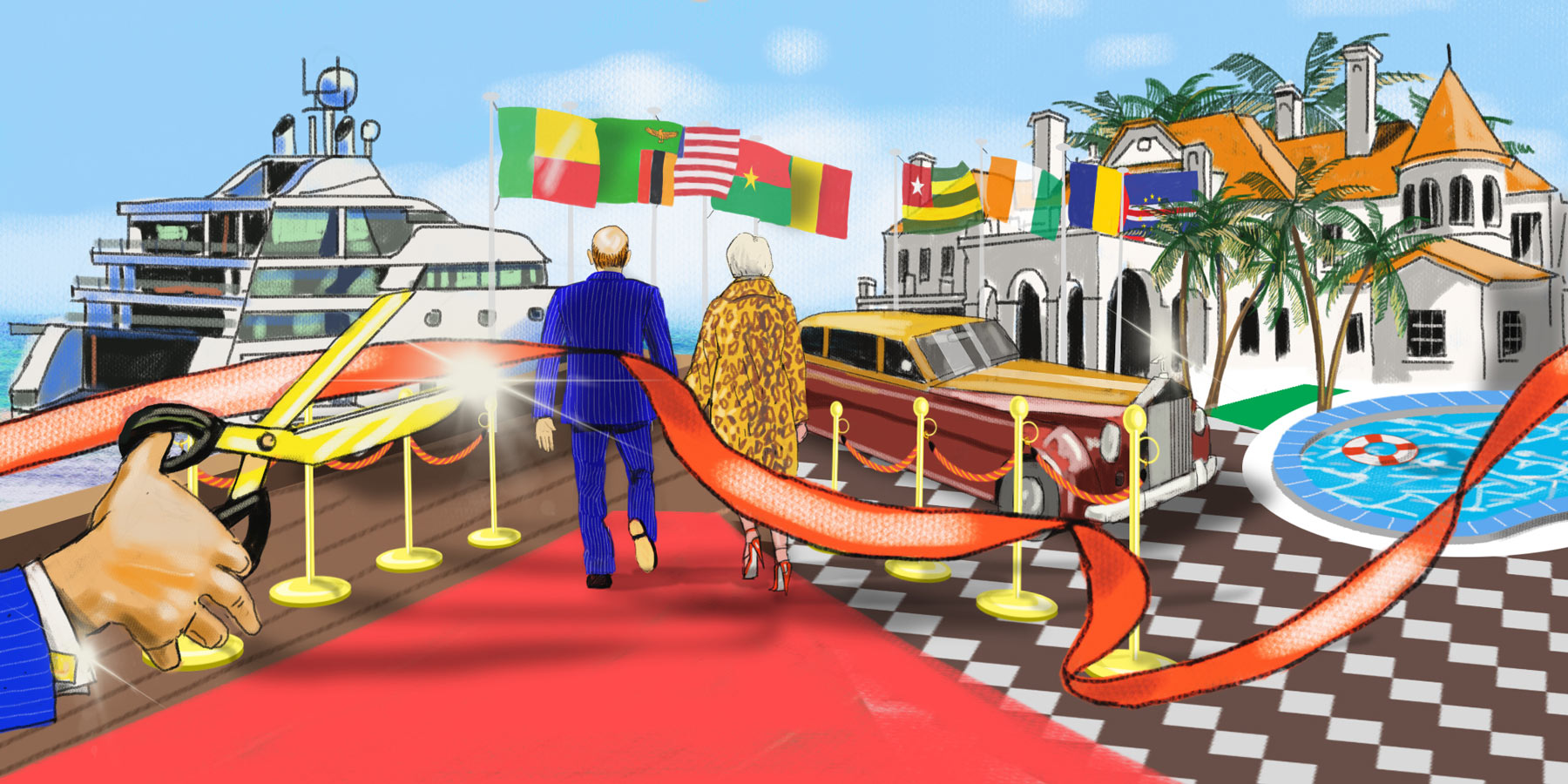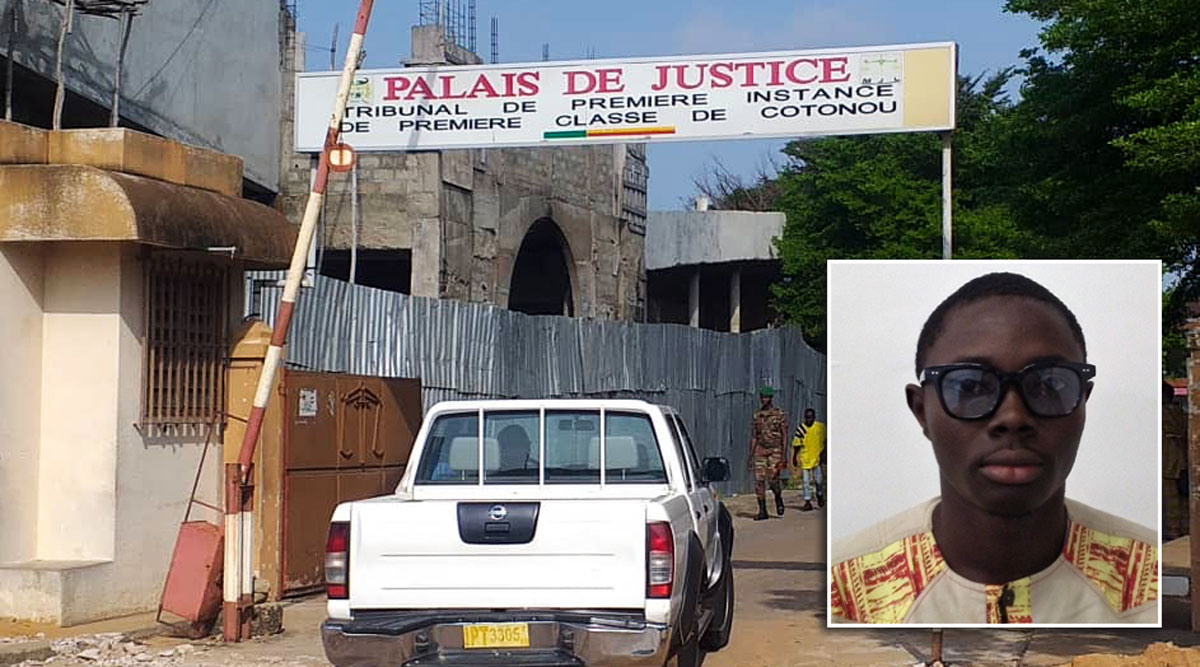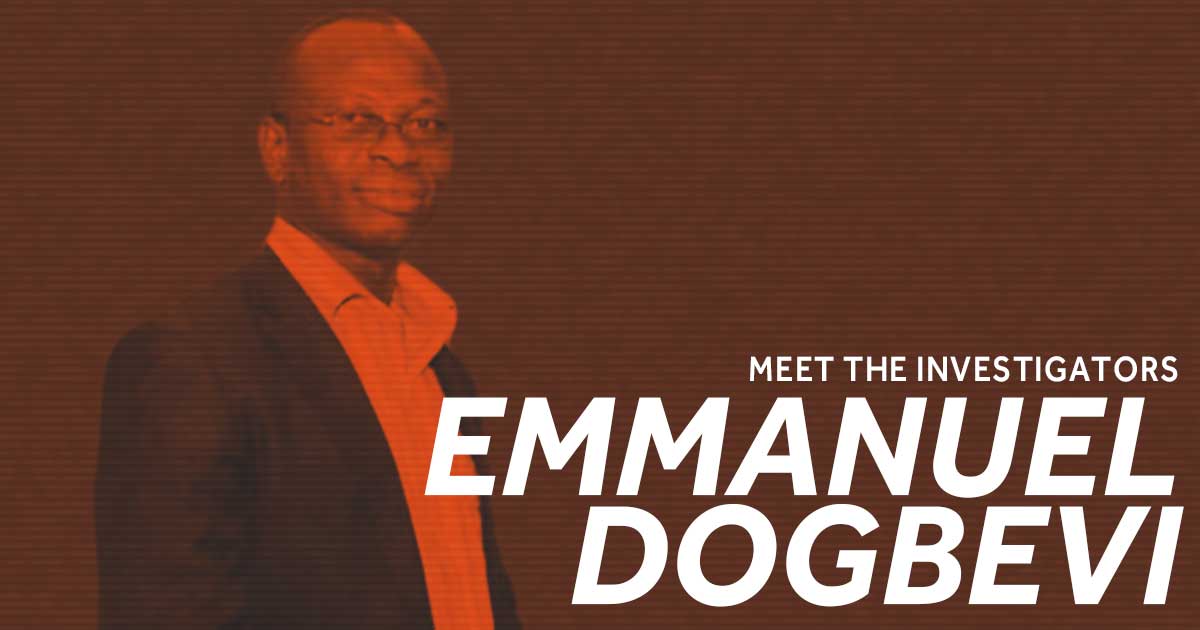Attorneys for a journalist jailed for tweeting about a speech in Benin, West Africa, have asked the United Nations to investigate his detention, arguing his case sets a dangerous precedent for press freedom.
Journalist Ignace Sossou, 31, has been in prison since 20 December 2019, after a senior prosecutor, Mario Mètonou, complained about comments Sossou published on social media.
Last month, lawyers for Sossou filed a complaint against the Government of Benin with the United Nations’ working group on arbitrary detention. The working group, based in Geneva, can investigate cases “of deprivation of liberty imposed arbitrarily.”
“The detention of Ignace Sossou is outrageous and unjustified: 18 months in jail for three tweets,” said Henri Thulliez, one of the lawyers who petitioned the United Nations. “Not only is freedom of expression repressed, but the right of each citizen to be informed is being trampled on.”
General Prosecutor Mètonou did not respond to requests for comment.
On Dec. 18, Mètonou spoke to journalists at an event organized by the French government’s media development agency, CFI.
Mètonou’s speech, an audio version of which is available online, told journalists that Benin’s new digital media law “is like a weapon aimed at the temples of … journalists”. Mètonou also said that a country-wide internet cut ordered by the government on the day of Benin’s last parliamentary election, April 28, 2019, was “an admission of government weakness.”
“Le Code du Numérique est comme une arme braquée sur la tempe des… Journalistes” – Le Procureur Mario Mètonou @CFImedias #VérifoxAfrique #Bénin
— Ignace Sossou (@Ignacekp) December 18, 2019
Sossou published extracts of Mètonou’s speech on Twitter and Facebook and the general prosecutor filed a complaint with the police.
Two days later, as the sun rose, members of Benin’s special “cybercrime” police force arrested Sossou at home in front of his wife and three children. Police didn’t tell Sossou why he was under arrest or provide documents to justify his detention.
Police held and questioned Sossou for 96 hours without allowing him to speak to his lawyer, according to attorneys.
On Dec. 24, after a fast-tracked four-day trial, a court in Cotonou, Benin’s largest city, found Sossou guilty of “harassment through electronic means.” The court sentenced Sossou to 18 months in jail and a $350 fine. Sossou’s lawyer did not have time to prepare a defense, he later said. Sossou and his lawyers have not received a copy of the judgment against him, making an appeal technically impossible.
Thulliez said that it’s possible that Mètonou, the prosecutor who filed charges against the journalist, may have regretted his criticisms of his own government’s media law and sued Sossou “to cover himself against possible reprimand from his hierarchy.”
Thulliez is a co-founder of the Platform to Protect Whistleblowers in Africa, which recently shared documents with the International Consortium of Investigative Journalists. The documents formed the basis of the Luanda Leaks investigation.
On a recent humid morning in February, Sossou’s young family, ICIJ reporters and other journalists visited him in prison. Sossou, who recently battled a bout of sickness in jail, had not seen his three-month-old daughter since his arrest 66 days earlier. “I’m staying strong with my head held high because I know I am unjustly imprisoned,” said Sossou, who collaborated with ICIJ on the Panama Papers and West Africa Leaks investigations.
Last year, in a separate case, a Benin court sentenced Sossou to a suspended prison sentence for “publication of false news” after he exposed alleged tax evasion by companies owned by a supermarket and hotel-owning tycoon and French government representative, Jean-Luc Tchifteyan. One of those stories, part of which was published by ICIJ, used documents from the Panama Papers investigation to show Tchifteyan owned a shell company to receive commissions.
Critics and observers have lamented the slide of democracy in Benin since President Patrice Talon, a former cotton magnate, took power in 2016. Reporters without Borders (RSF), which is working to free Sossou, said that his detention is part of growing “censorship and repression of freedom of expression.”
In April 2018, Benin introduced a digital media law that criminalizes the online publication of “false information.” Critics, including journalists and Amnesty International, have called for the law to be reformed. “The numerous arrests and prosecutions carried out under some of its provisions reinforce the climate of censorship and fear that reigns in Benin,” according to an analysis of the law earlier this year by Amnesty International.
President Talon visited Washington, D.C., in January. Asked about Sossou’s detention, a State Department official told ICIJ: “We continue to watch Mr. Sossou’s case closely as it moves through the Beninese judicial system and engage with the government on the importance of respect for due process and freedom of the press.”
Arnaud Froger, head of RSF’s Africa desk, said that Sossou’s case may be the first time that a West African journalist has been jailed for “correctly reporting comments on social media.”
“Sossou’s case is the most blatant evidence that the flourishing laws aiming at fighting disinformation, cybercrime, hate speech or even terrorism in Africa are very often too vaguely worded and very restrictive,” Froger said. “No press offenses should ever lead to a prison cell.”



